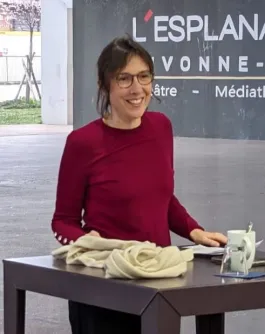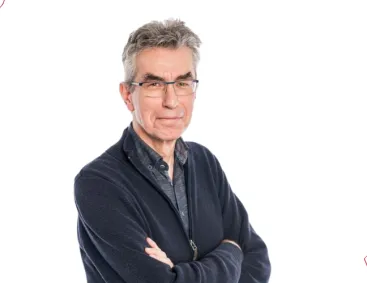Fostering high-level university research in public higher education establishments
The Institut Universitaire de France (IUF) is a group of teacher-researchers selected by an international jury for the exceptional quality of their research. Winning members remain in their home institutions, but receive partial teaching release and a budgetary allocation to enable them to pursue their research activities.
The IUF is made up of:
- junior members: young teacher-researchers under 40 whose work is of exceptional quality and who need a springboard to develop their activities;
- senior members: teacher-researchers who have acquired international recognition over the course of their careers;
- international guest members (up to 10 per year).
The IUF's support should enable them to devote more time to their research activities under optimal conditions, and at the same time deploy actions to disseminate knowledge to society.


Laure Flandrin: specialist in the political sociology of business
A former student at the École Normale Supérieure de Lyon, laure Flandrin holds an agrégation in social sciences and a doctorate in sociology. Her research pursues three objectives in three distinct fields:
- Contribute to the development of a social science of the living, formulated by sociologist Bernard Lahire, aiming to overcome the oppositions between nature and culture in a realist perspective ;
- Structure a program in political sociology of business to point out the homological relationships between the state and business;
- Contribute to the formulation of an ethics of engineers and the initiation of a reflection on the regenerative economy initiated by Centrale Lyon.
Structuring a research program in the political sociology of business
With this appointment, Laure Flandrin aims to structure a research program in the political sociology of the company. It's not just a question of pointing out that the company is a place structured by power relationships, or even of broadening the perspective to take into account the positioning of companies on state-type missions. It's a question of marking the idea that the company is "inhabited" by the public, dependent on it both materially and symbolically, and consequently of uncovering the public structures of private affairs.
Pierre Bourdieu already mentioned, in his lectures on the state at the Collège de France, that "what we call the private is, to a large extent, especially the corporate, inhabited by the public. There is no sector of business that is not heavily dependent on the State. All our talk of liberalism is extremely naive, and the point of studying the state is precisely to show the extent to which differentiated societies are penetrated through and through by state logic" (2012).
However, the sociology of relations between the state and private enterprise suffers from an imbalance: social scientists most often question what the private does to the public, more rarely what the public does to the private. As a long-term historical construct, the state nevertheless continues to inform and inspire the private sector well beyond its classic functions of allocating capital, regulating markets or even training the workforce upstream of the economic game, and redistributing wealth downstream. It is therefore to a rebalancing of the analysis of public-private relations that Laure Flandrin's IUF project aims to contribute.
Within the framework of the IUF project, the point of entry into this sociology is through the analysis of practices to protect the informational capital of firms that solicit business intelligence experts. Often coming from the intelligence or police services, these professionals transfer to companies the security prerogatives of the State: defense of sovereignty, war, surveillance, secrecy, mobilization policy, exceptional justice. These shifts are renewing the ways in which work is supervised, and calling into question the political role of companies. While the focus here is on the right hand of the state, the collective program in the political sociology of the firm aims to broaden the perspective to corporate practices that fall more to its left hand ("general interest" capitalism, socio-environmental missions, etc.
The collective program in the political sociology of the firm aims to broaden the perspective to corporate practices that fall more to its left hand ("general interest" capitalism, socio-environmental missions, etc.
Produce and disseminate knowledge
Parallel to her scientific objectives, Laure Flandrin's project is firmly rooted in a spirit of scientific popularization (radio broadcasts, colloquia and editorial projects with La Découverte publishing house).

